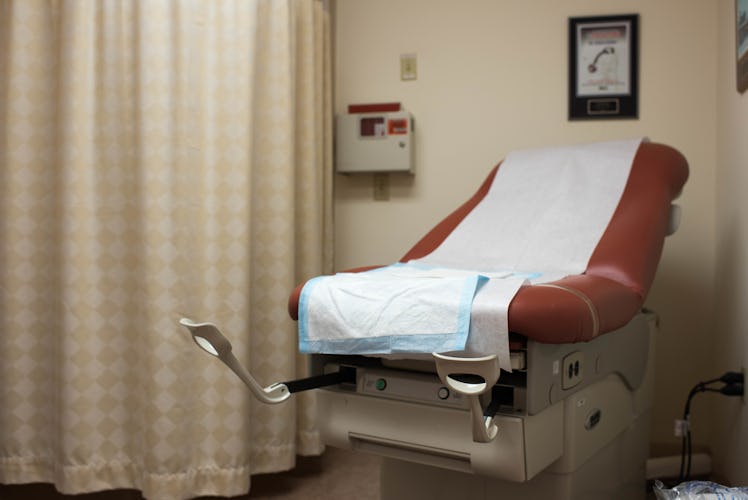
Lots Of Young Women Don't Want To Discuss STDs With A Doctor & The Reason Why Is So Sad
If you're sexually active, caring for your sexual health means taking on a few key responsibilities: giving and getting consent, practicing safe sex, and getting tested regularly for STDs. Unfortunately, a 2018 study shows that many young women aren't being tested for STDs, even though there's a serious need for it. The Centers for Disease Control and Prevention (CDC) estimate that even though people 15-24 make up just over a quarter of the sexually active population in the United States, they account for half of the 20 million new sexually transmitted infections that occur each year. STDs and STIs are on the rise, and since some can lead to long-lasting or life-long symptoms, it's important to take control of your sexual health and get tested.
However, a 2018 study by Quest Diagnostics found that some sexually active young women aren't getting tested because they're afraid to talk to their doctors about their sexual health. The study attributed the problem to people's perception of a stigma surrounding STDs and STIs, which the study authors said leads to a lack of communication between health care professionals and patients.
The researchers made this discovery when analyzing the results of a survey they designed to examine how people in different social categories perceived sexual health. Within the survey, people (young women between 15 and 24, moms with kids around that age, primary care physicians, OB-GYNs, and other sexual health doctors) were asked about sexual activity, sexual health and how much they knew about STDs.
The survey found that 56 percent of sexually active young women have been tested. Of the ones who weren't tested, 62 percent said they didn't feel as if they were at risk of getting STDs in general (plus, 86 percent and 88 percent said they felt they weren't at risk for getting chlamydia and gonorrhea, respectively). Furthermore, 55 percent said they didn't get tested because they didn't have any symptoms — despite the fact that many STDs have no symptoms, including human papillomavirus (HPV), gonorrhea, chlamydia, syphilis, and human immunodeficiency virus (HIV).
While most of us would hope that a doctor would urge a sexually active patient to get tested, even if they present a seeming lack of symptoms, the survey found that that's unfortunately not always be the case. Researchers found that a third of doctors rely exclusively on symptoms to diagnose an STD. Furthermore, a quarter of them will ignore the CDC guidelines for STD testing if they feel that their patient isn't displaying any symptoms.
The CDC has specific recommendations for who should be tested for STDs and how often those tests should occur: Sexually active people under 25, they say, should be getting tested at least once a year, regardless of whether they think they're at risk.
Let's dive even deeper into why all of this might be happening. Fifty-one percent of young women surveyed admitted they don't want to bring up the topic of sex with their physicians, and 27 percent added that they sometimes lie about their sexual history to their doctors. This number gets even higher amongst teens, with 43 percent of people 15-17 saying they sometimes fudge the truth about their sexual history to doctors.
Most troubling of all is that 49 percent of young women surveyed say they don't recall their doctor ever asking if they want to be tested for STDs. While it's possible some just can't quite remember — hey, doctors throw a ton of questions at patients — it's also entirely possible that physicians are skipping out on an important part of medical care. The onus to ask for testing shouldn't fall on the patient's shoulders; less than a quarter of sexually active women reported directly asking their doctors for testing. The study found that 24 percent of primary care doctors said they weren't comfortable talking to female patients about sex-related risks.
“We know that people often think of STIs as something that happens ‘to others’ and, frequently, health care providers have similar beliefs and don’t view their patients as being at risk,” Lynn Barclay, president and CEO of the American Sexual Health Association said in a statement. “Testing is crucial in young women because STIs are very common, often without symptoms, and undetected infections like chlamydia can lead to problems including infertility."
If young women can't rely on their doctors to openly and honestly give them information about sexual health, whom can they depend on?